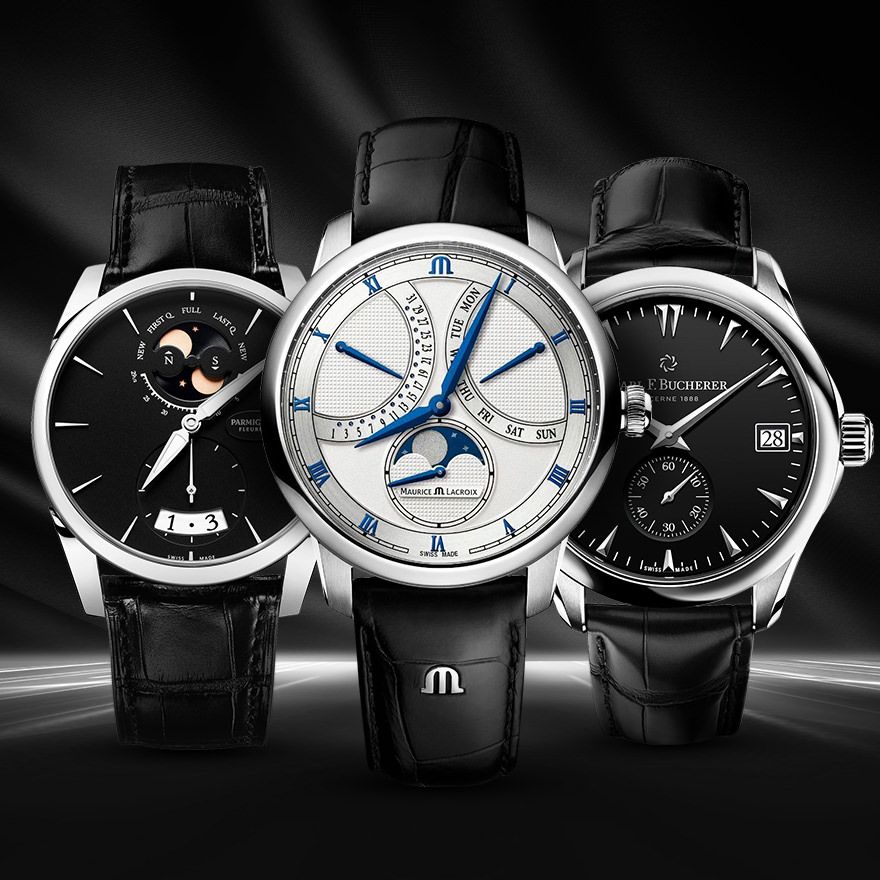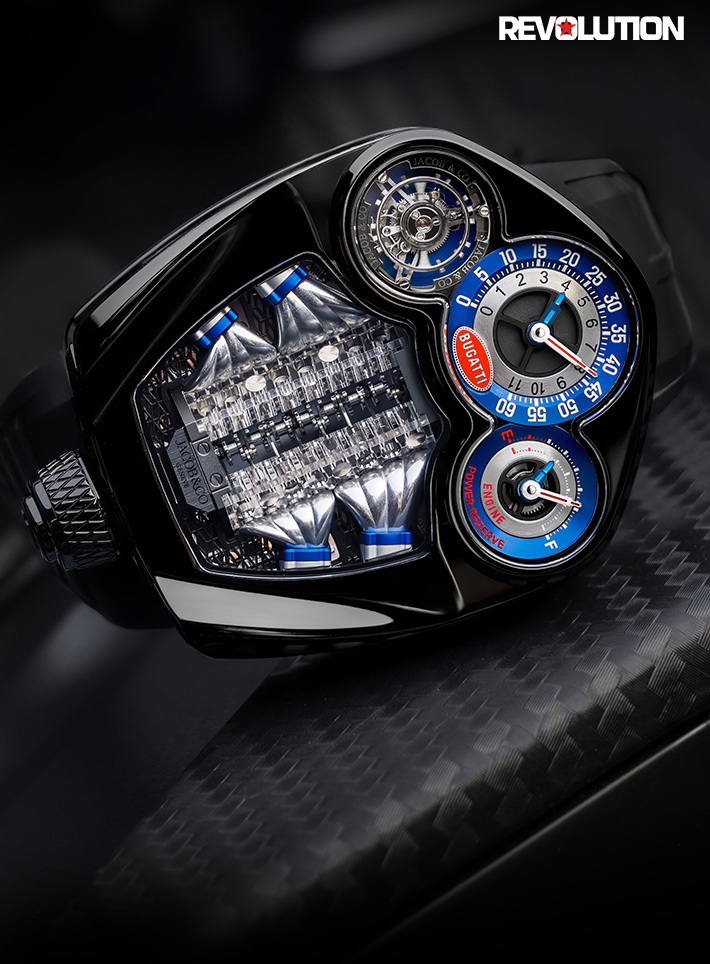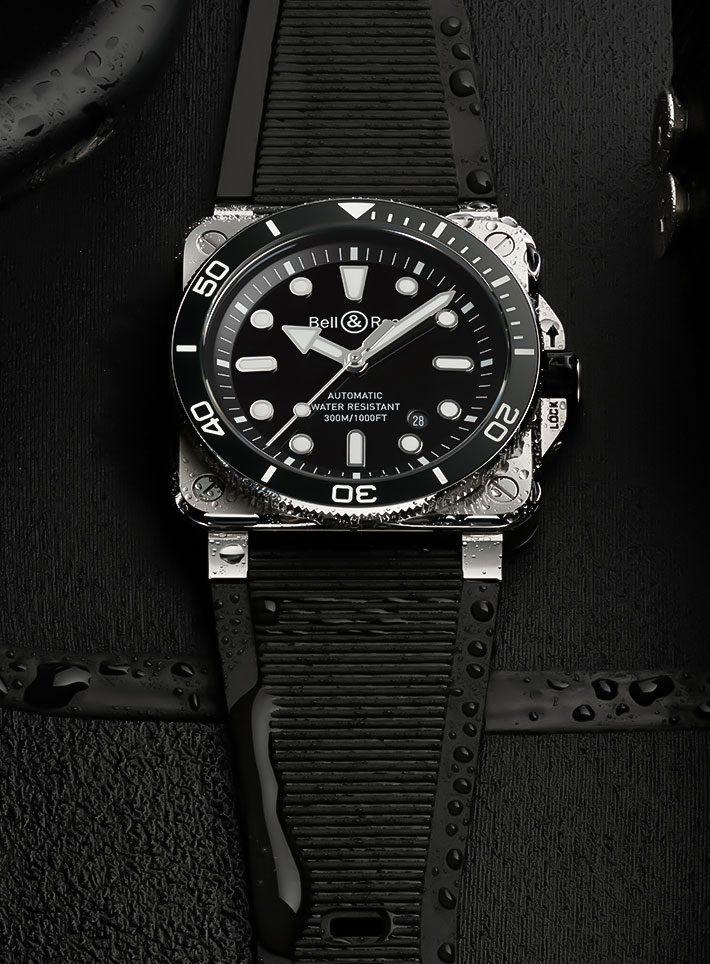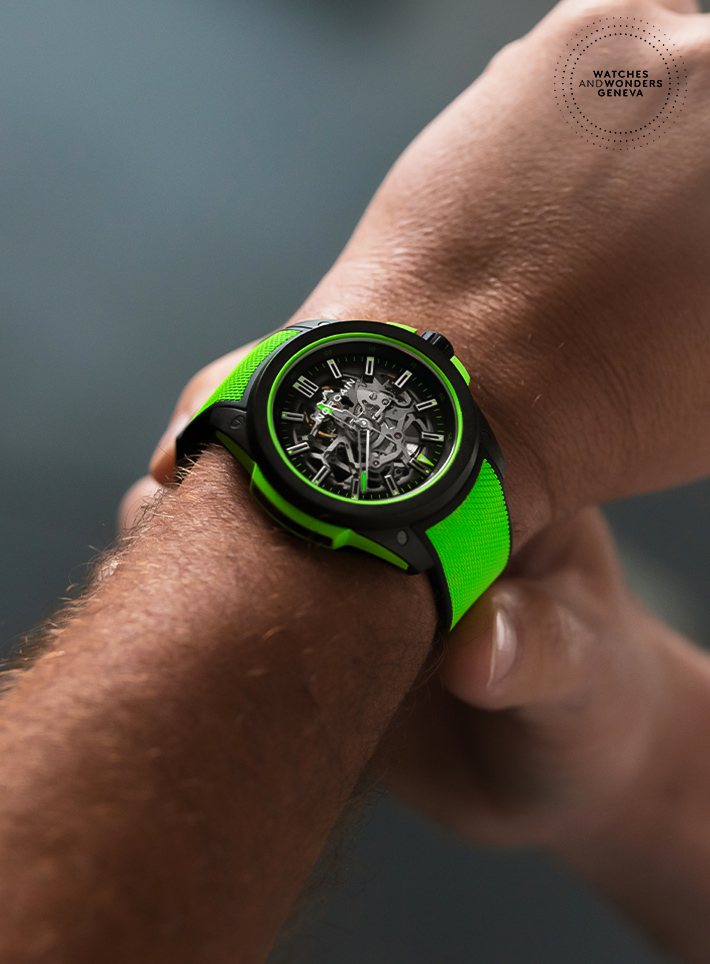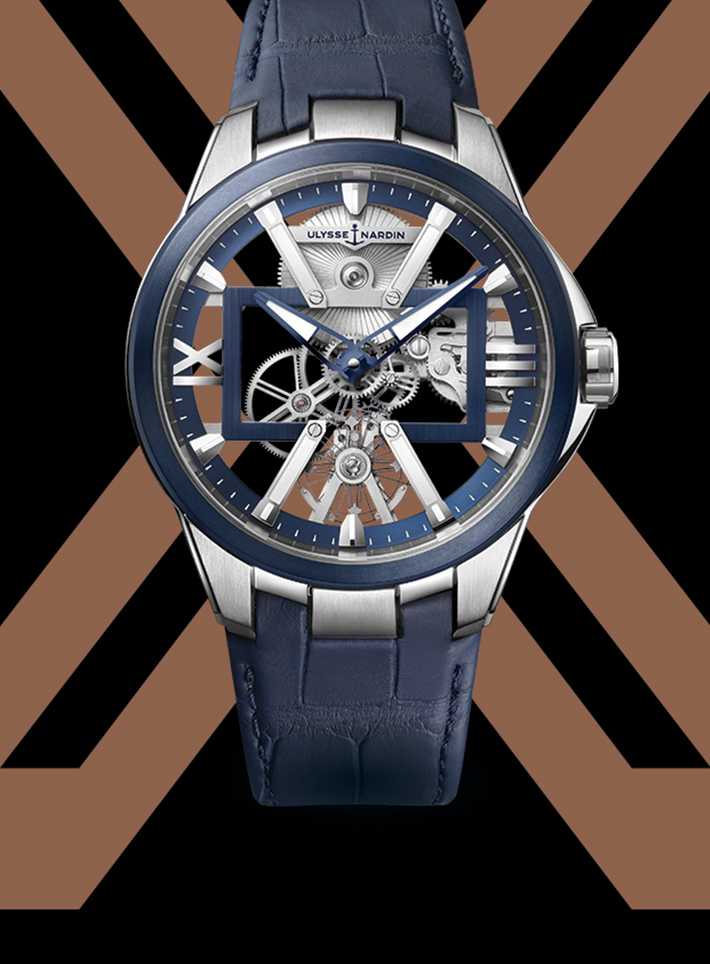FeatureOf Royalty And Their Shields: Introducing Tudor And Their Top Watches
No longer considered just an ‘accessible Rolex’, today, Tudor have a distinct identity as innovators and luxury watchmakers, with a rich heritage and contemporary approach to time-telling
May We Recommend
Often referred to as the ‘working man’s Rolex’, Geneva-based watch manufacture Tudor is much more than just an inexpensive Rolex. While the brand was created for a specific purpose—specifically, to provide a dependable and accessible alternative to its expensive sister brand—Tudor have come into their own with easily identifiable, purpose-driven tool watches that promise reliability and robustness. Over time, the brand have developed their own unique identity and, for generations of collectors, Tudor’s innovations hold an important—and readily available—place among their watches. Collections such as the Black Bay, Pelagos, Ranger and 1926 are as fresh and modern as they are rooted in the brand’s 98-year history.

How Tudor Became A Force Of Its Own
In 1926, Swiss dealer and watchmaking brand Veuve de Philippe Hüther registered the trademark ‘The Tudor’ for businessman Hans Wilsdorf, which they transferred to the Rolex founder in 1936. The idea behind the brand was to utilise Rolex’s know-how and resources to provide less-expensive alternatives. Named for the royal family that ruled England—and more than half the world at one point—the brand’s logo was initially an elongated ‘T’ shielding the other letters. This changed to the English rose in 1947 when the brand was officially launched under Wilsdorf. The shield logo appeared in 1969, as a symbol of the watches’ solid reliability.

Tudor 1926 And Tudor Royal
To commemorate the year Tudor was established, the brand released this edition of the 1926 collection, with classical design codes, in 2021. In various sizes of 41mm, 39mm, 36mm or 28mm, cases of the 1926 collection are made from 316L stainless steel, or steel and rose gold. Paired with a steel, or dual-toned bracelet with seven links, each a different size and finish, or a leather strap, the watches exemplify the brand’s heritage. Traditional looking domed dials in black, white, opaline or silver, are decorated with an embossed pattern in the centre, while a smooth minute track on the periphery stands out. The elegance of the timepiece is enhanced by rose gold highlights on the dial, including leaf hands and even-numbered Arabic numerals, with arrow-shaped indexes or diamonds for odd numbers. At three o’clock is a date window.

A sport-chic timepiece with a notched bezel and integrated bracelet, the Tudor Royal collection was presented in 2020, although the name dates back to the 1950s. The case in 316L steel or yellow gold and steel, in four sizes, is paired with a matching, single- or dual-toned, five-link bracelet that stands out for two slim polished links contrasting with three satin-brushed ones. Stately Roman numerals, combined with diamond indexes, against sunray-brushed dials in black, silver, salmon, brown, Champagne-colour or blue enhance the elegance of the Royal timepiece.

Tudor Oyster Prince And Tudor Ranger
Initially, Tudor timepieces shared many a design cue with the brand’s sister concern, Rolex, which is perhaps what earned them the ‘working man’s Rolex’ moniker. In 1952, Tudor released the famed Oyster Prince, with a self-winding movement within a sealed case resistant to dust and 100m of water. This revolutionary Oyster case lent the brand a reliable and robust image. The advertising campaign showed men wearing the Oyster Prince at a construction site or on a long-distance motorcycle journey, and implied that ‘Rolex knew the watch would keep perfect time’ despite vigorous vibrations.
Thirty of these revolutionary Oyster Prince timepieces accompanied the British North Greenland Expedition for two years while the scientists wearing them carried out their research. Present-day Ranger watches uphold the principles of the 1952 Oyster Prince. The ‘Ranger’ name, however, was registered much earlier, in 1929, and while the collection received distinct identifiers only in the 1960s, the idea of it being a tool watch suited for extreme adventure has always remained. Sized at 39mm, the 316L steel case houses the COSC-certified in-house calibre MT5402, with a power reserve of approximately 70 hours. The brand’s English rose motif decorates the crown at three.
Its grained black dial is a modern reinterpretation of the 1965 Ranger, with lume-filled Arabic numerals at 12, three, six and nine o’clock, and markers for the rest, arrow timekeeping hands and a red-tipped seconds hand, and a neat minute track around the periphery. The watch is paired with a satin-brushed three-link steel bracelet, a special olive green fabric strap woven on 19th century jacquard looms, or a fabric-textured black rubber strap with beige stitching.

Tudor Submariner And Tudor Black Bay
Two years after the Oyster Prince was released, the first Tudor Submariner was introduced in 1954. With every successive upgrade of the successful dive watch, the brand developed their own repertoire of sturdy, shock- and water-resistant watches that were fit for adventure, both underwater and on land. The brand released versions of the Submariner until the 1980s, with distinctive square markers and ‘snowflake’ hands. Tudor’s Black Bay collection, launched in 2012, is a modern-day reincarnation of the iconic Submariner. Among the brand’s most admired collections today, the Black Bay line includes modern dive watches inspired by 1950s design codes. On the dials of these timepieces, distinctive hands, and a mix of dot, line and triangle indexes, filled with Super-LumiNova, give the Black Bay collection a minimal and functional aesthetic. Building on this collection, the brand introduced various sub-series featuring different case sizes and complications like the chronograph and GMT functions.

Black Bay 54
Released in 2023 to commemorate Tudor’s first ever dive watch, reference 7922, the Black Bay 54 is a modern-day reinterpretation in a 37mm case size water-resistant to 200m. A clean, unidirectional rotating dive bezel, with an inverted triangle filled with lume but devoid of colour at 12 o’clock, evokes the first ever dive watch created by the brand. The COSC-certified MT5400 calibre with a silicon balance spring powers the Black Bay 54 timepiece.

Black Bay 58 And Black Bay 58 GMT
The Black Bay 58, introduced in 2018, features a 39mm case with a large crown at three o’clock. A lume-filled inverted red triangle at 12, and gradations for the first 15 minutes set the dive bezel apart from the bidirectional rotating GMT bezel of the Black Bay 58 GMT in red and black for day and night. The Black Bay 58 runs on the chronometer calibre MT5402 with a bi-directional rotor, while the Black Bay 58 GMT is powered by the COSC- and METAS-certifed manufacture calibre MT5450-U.
Black Bay GMT
Featuring a bidirectional rotating bezel with the 24-hour GMT scale in distinctive blue and red hues for night and day, like a certain famous ‘Pepsi’ bezel, the Black Bay GMT features a 41mm case made from 316L stainless steel. A red GMT ‘snowflake’ hand stands out against the opaline white dial. The watch is powered by the MT5652 calibre with a bi-directional rotor.

Black Bay Chrono
Tudor, like most mechanical watch brands, suffered setbacks before being re-launched in the 21st century. The Tudor Heritage Chrono is what brought the brand back into focus when it was unveiled in 2010. This was a faithful rendition of the brand’s striking 1970s chronograph, but with new strap options. The Black Bay Chrono was reintroduced in 2021 to mark 50 years since the brand’s first chronograph, the Oysterdate. This was very different from the heritage chrono, but its manufacture movement made it that much more special. With a bicompax panda or inverse panda dial housed in a polished and satin-finished steel case measuring 41mm, and a bezel insert in black anodised aluminium marked with a tachymeter scale. Inside the watch is the chronometer certified automatic manufacture calibre MT5813, whose functions include timekeeping, chronograph and date.

Black Bay Pro
A modern watch designed for adventurers, the Black Bay Pro features a 39mm polished and satin-finished steel case. A monochromatic and contemporary fixed bezel displays 24 time zones, and a yellow GMT hand filled with Super-LumiNova indicates the home time on the dial. This can be adjusted in either direction by a ‘jumping hour’ function built into the MT5652 manufacture calibre. The watch can be paired with a steel bracelet, fabric strap or a hybrid rubber and fabric strap in shades that complement the dial.
Black Bay 31/36/39/41
An urban-inspired everyday-wear timepiece is the Black Bay that departs from its diver and globetrotter functions, and comes in curved cases measuring 31mm, 36mm, 39mm and 41mm. This stylish Black Bay is marked by its fixed bezel and curves along the case profile and crown, and is paired with a sleek and ergonomic five-link bracelet. On the dial, classic design elements from the archives, such as the snowflake hands and mix of geometric indexes, can be seen. The watches are powered by COSC certified manufactured calibres MT5201 for the 31mm, MT5400 for the 36mm, MT5602 for the 39mm and MT5601 in the 41mm timepieces.

Military Connections And Tudor Pelagos
Naturally, the robust and water-resistant Tudor Submariner of the 1950s, 60s and 70s were extremely popular not just among enthusiasts but also among professional divers and military organisations around the world. The French Navy or the Marine Nationale Française, the US Navy and other military establishments included the Submariner in their equipment for divers. These issued dive watches went on to serve as crucial tools during underwater explorations. Modern-day Pelagos watches, introduced in 2012 and named in Greek for the sea, are a nod to the brand’s military connection, with robust 42mm cases in titanium, a ceramic bezel marked with a 60-minute dive scale, and a 200m water resistance rating. The Tudor Pelagos line features watches with a carbon composite case, and even those with chronograph functions. A grained dial centre, smooth flange housing the minute track, ‘snowflake’ hands, and square indexes are what set this collection apart.
Tudor Clair de Rose
Among the newer collections by Tudor, the Clair de Rose line is named for the French phrase clair de lune, or moonlight, and the brand’s English rose logo that still decorates the crown on some Tudor timepieces. The collection was introduced in 2011 and was redesigned in 2017 to include cues from the brand’s Princess, Glamour, Royal, and Miss Tudor lines. Available in three sizes, 26mm, 30mm and 34mm, the curved steel case features a crown decorated with a carbochon. Dials feature a smooth track around the periphery for Roman numerals or diamond indexes, and a textured radial centre. The striking identifier of this collection is its five-link steel ‘beads of rice’ bracelet, which enhances the elegance of the case’s smooth curves, textured dial in blue or opaline, and sword hands.
Tudor may have started out as an ‘accessible Rolex’, but almost a century later, the brand are now widely respected for their quality watchmaking, COSC-certified manufacture movements, and design codes that merge their heritage and present-day watchmaking techniques and design. Conscious attempts to distance themselves from sister brand Rolex seem to have paid off. Their ongoing campaign #BornToDare revels in how the brand have pushed the boundaries of watchmaking while staying true to their heritage, and this is embodied by daring professionals David Beckham and Lady Gaga. And, while comparisons with other brands are inevitable, Tudor’s journey thus far has been an admirable one, and one we can’t wait to watch unfold.

